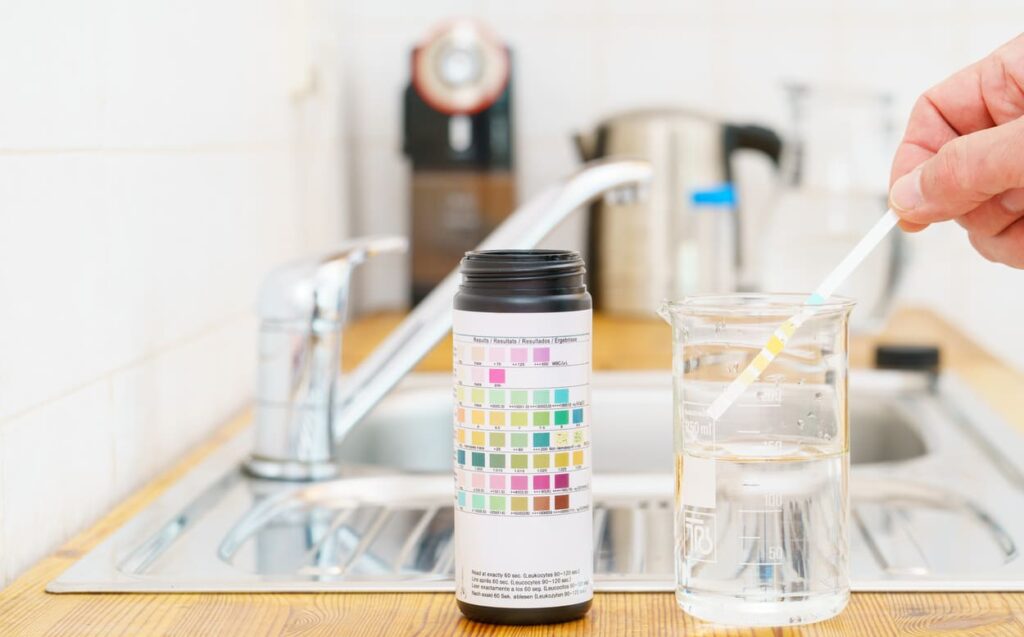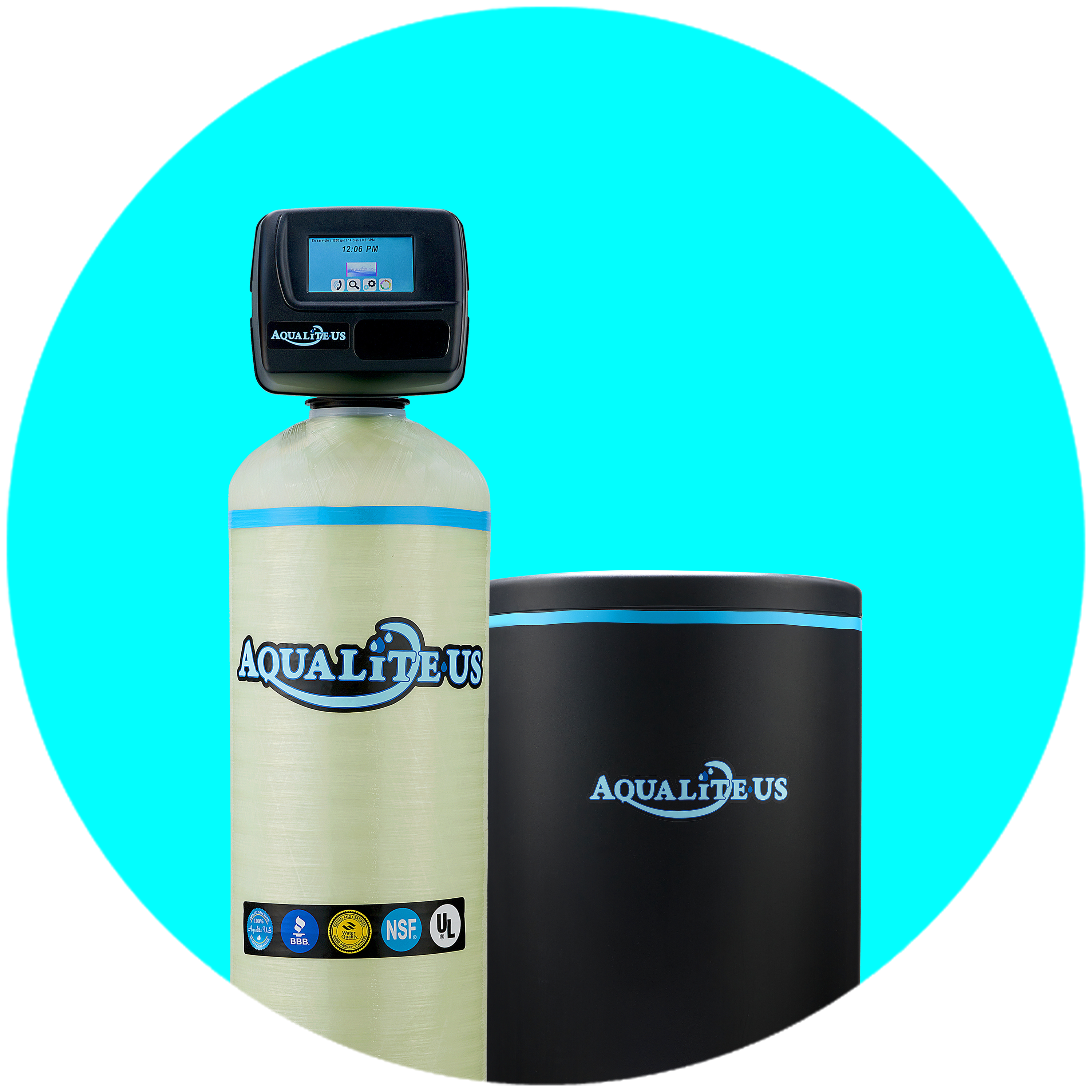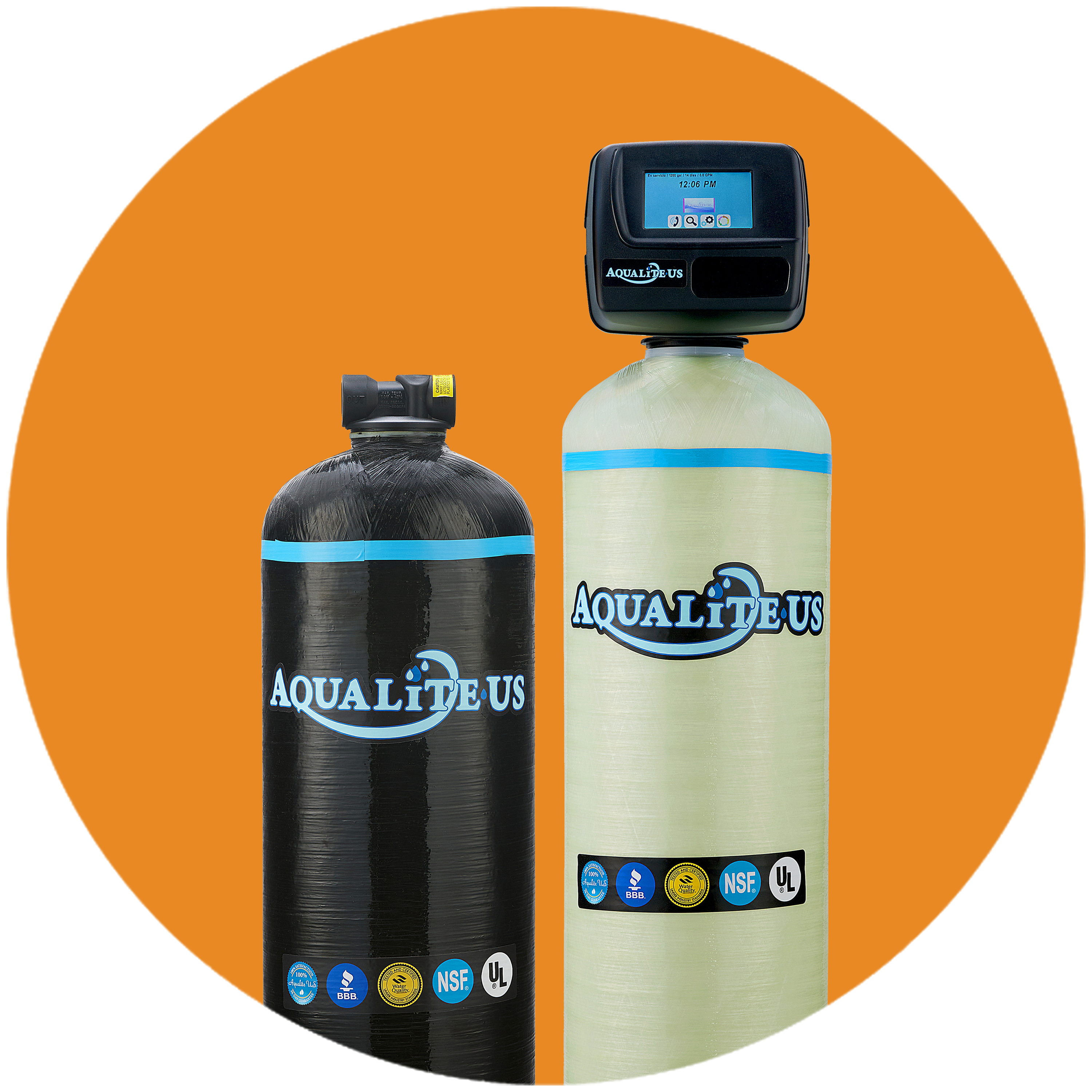Learn why homebuyers should make water testing a priority when buying a new home.
If you are in the market for a new home, you may be surprised to learn that some loans—including those from the FHA, VA, and USDA—have additional requirements for water testing.
Even if you plan to buy a home on a public water supply, knowing what is in the water is important. While public water is tested and should have “safe” amounts of minerals and contaminants, you may not want your family to ingest them at all. Learn more about the importance of water tests and how to use them in the negotiation process.
Homes with Private Wells
If you are looking at a home with a private well and you have no experience with one, it might seem a little daunting. While there is no reason to be afraid, you do not want to run into any surprises.
Here are a few things you should know about well water:
- It comes from the ground. As it moves through aquifers, soil, and rock, it may pick up a few natural substances along the way, including manganese, arsenic, chlorides, fluorides, sulfates, and radionuclides (including radon).
- It may be “hard.” The minerals calcium and magnesium, found in rocks and soil, are responsible for water hardness. Hard water is characterized by the lack of lather when you use soap. Water hardness can:
- Cause plumbing problems because of mineral buildup in the pipes.
- Cause mineral buildup that makes your water heater work harder. This uses more energy and shortens the life of the water heater.
- Leave spots on dishes when they come out of the dishwasher and stain clothes.
- Affect the longevity of appliances, including your washing machine, dishwasher, and coffee maker.
- It may stain tubs and sinks and have an odor. A slight sulfurous odor and metallic taste indicate iron. Iron can stain clothes and leave reddish stains in your sink, toilet, or bathtub.
- The water may be contaminated. The Environmental Protection Agency (EPA) does not regulate private wells. As a result, the well owner is responsible for the safety of their water. Both natural and manufactured contaminants may be present, including:
- Bacteria, viruses, and parasites.
- Nitrate and nitrite from fertilizers and human and animal waste.
- Heavy metals from mining and manufacturing that may be toxic at high levels.
- Organic chemicals from household products such as inks, pesticides, solvents, and disinfectants.
- Radionuclides, including radon, which can come from groundwater or mining activities.
- Fluoride, which, while used to prevent tooth decay, can cause health problems at high levels.
- It must be tested at least once a year.

Home Loans That Require Water Testing
Some organizations require well water testing to be eligible for home loans. Among them are the Federal Housing Administration (FHA), Veterans Administration (VA), and United States Department of Agriculture (USDA).
FHA Loans (Federal Housing Administration)
The FHA requires that to qualify for a loan, a well water test must be done for properties:
- that are newly constructed,
- where an appraiser has reported deficiencies with a well or the well water,
- where water is reported to be unsafe or known to be dangerous,
- located near dumps, landfills, industrial sites, farms (pesticides), or other sites that could contain hazardous waste,
- where the distance between the well and septic system is less than 100 feet.
Also, the water must meet the health authority’s requirements that have jurisdiction over the water supply; if there is none, water must meet EPA National Primary Drinking Water Regulations.
VA Loans (Veterans Administration)
The VA requires a water test every time a property with a private well is purchased or refinanced with a VA loan. Water must be tested for:
- Lead
- Nitrates/nitrites
- Microbial contaminants, including fecal coliform
- Other contaminants of local concern
- If specific local guidelines are not established, the VA requires the well water to meet the Environmental Protection Agency (EPA) standards for “water acceptability.”
USDA Loans (US Department of Agriculture)
The USDA loan requirements include:
- The local health authority or a state-certified laboratory perform a water quality analysis,
- Water must meet or exceed minimum thresholds for:
- Lead
- Nitrates/nitrites
- Coliform count.
- The well water must meet the requirements of the state or local authority. If there are none, then EPA regulations must be met.
In all cases, the water must be tested by an independent third party.

Homes With Public Water Should Be Tested, Too
If the home you are looking at is on municipal water, it is regulated by the Safe Water Drinking Act, which sets acceptable levels of contaminants in drinking water; however, problems can still occur. Such as in Flint, Michigan, where lead-contaminated public water caused rashes, hair loss, and elevated blood lead levels in children.
In addition, the public water that comes out of the tap can collect contaminants when traveling through the pipes used to transport it from the water source to your home. A 2020 study by Purdue University, the largest of its kind, found that the water quality from your home faucet can differ from the water quality at the public source. If you want to ensure your water is clean, safe, and healthy for your family, you should get the water tested before moving in.
Water Testing and Price Negotiation
According to Realtor.com, water testing is rarely part of a basic home inspection. This means you will need to have a professional water test in the home you are interested in buying. Two kinds of water tests can be done:
- Tests that look for problems that will affect the home’s infrastructure but do not address drinking water issues.
- Tests that look for harmful minerals, chemicals, microorganisms, and volatile organic chemicals harmful to human health.
Aqualite offers a free water testing service that seeks out hard-to-identify problems in the water that could affect your family’s health and your home.
The good news is, almost all water issues are treatable with a water filtration system and/or water softener. After testing your water, our technicians can share recommendations for solutions and provide estimated costs.
Buying a home is a significant investment, and you want to make sure you will not run into unnecessary issues in the future. Water quality is essential—and you can use that in negotiating the property price by:
- Including in the contract that the current homeowner will make and pay for water system upgrades before you move in
- Requesting a lower selling price and using the savings to pay for the upgrades yourself
- A combination of both.

Post-purchase is Still a Good Time for Water Upgrades
Even if you did not know about any water problems before you moved into your new home, water filtration and water softening systems are still a good investment that can save you money:
- If the water is hard, a water softener will:
- Help soap and detergent lather and clean better, saving you money on dishwasher, bathroom, and washing machine soap,
- Prevent your clothes from stains, and help fabric last longer,
- Avoid plumbing problems and plumber visits due to buildup that affects water pressure,
- Increase the longevity of appliances and your water heater.
- A water filtration system will:
- Eliminate doctor visits and bills due to health issues caused by contaminated water,
- Eliminate the need for expensive bottled water, which also adds harmful plastic to the waste stream.
At Aqualite, we are the water quality experts. If you are considering buying a new home, then call us for a free water test. We will come up with a water treatment plan that best fits your individual needs. Contact us today!



